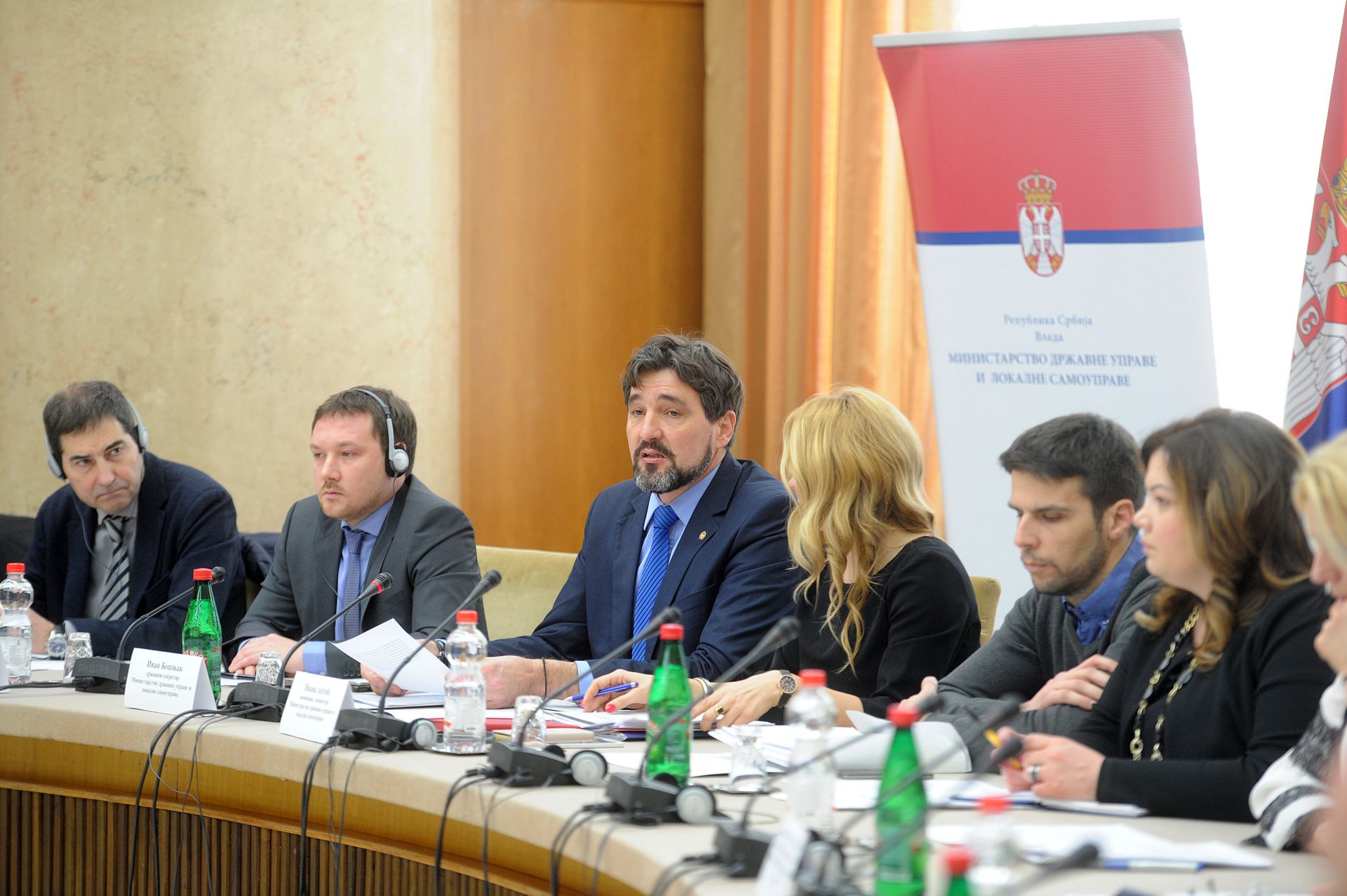
Today, the State Secretary at the Ministry of Public Administration and Local Self-Government, Ivan Bošnjak, expressed the expectation that after the public consultations, the Draft Amendments to the Law on Free Access to Information of Public Importance will be further improved and become something that state bodies, citizens, and international community, fully support. At the round table organized by the Ministry in the framework of the public consultations on the Draft Law, he reminded that Serbia had also committed itself to amendments to this Law in the course of the negotiations with the EU on Chapter 23, and that in the previous period this Law was proclaimed one of the best legal solutions in the world. “A difficult task is ahead us – to further improve something that is the best,” Bošnjak added. He said that during the years of implementation of the Law and work of the Commissioner, it has turned out that it is necessary to improve both the responsibility and the coverage of those who are liable to act upon requests for information. “Therefore, one of the most important goals that have already been emphasized is the extension of the group of persons that fall within the scope of the Law, and a proportional reduction of a large number of access to information of public importance requests,” Bošnjak said. He added that the focus is on the demand for the principle of transparency, and that attention is devoted to the introduction and improvement of those institutes that are necessary from the point of view of the development of human rights, the implementation of international standards and practices of most EU countries in this field. He said that special attention is devoted to the realization of the public’s right to know, and that the Law will also improve data secrecy, personal data protection, general administrative procedure and many other elements. Bošnjak said that the public consultations on this Draft Law would last until 19 April 2018 and invited all interested institutions, organizations, NGOs, professionals and citizens to take part in the consultations in order to reach the best possible statutory solutions.



